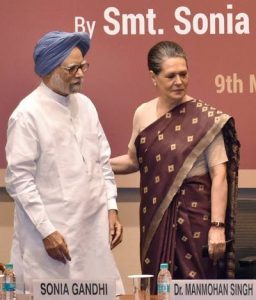 Janjivan Bureau / New Delhi : Somnath Chatterjee will best be remembered for three things–a catalyst for opposition unity, Speaker of the Lok Sabha and rebel in his own party–all in a span of nine years.
Janjivan Bureau / New Delhi : Somnath Chatterjee will best be remembered for three things–a catalyst for opposition unity, Speaker of the Lok Sabha and rebel in his own party–all in a span of nine years.
Known as one of the most articulate Marxist parliamentarians, Chatterjee started acquiring a national profile since the start of the new millennium as he began organising meetings of opposition leaders at his Ashoka Road residence.
It was at these conclaves that the Marxist leader became a bridge between the Congress under Sonia Gandhi and other political leaders outside the BJP-led NDA fold, including the Samajwadi Party.
These meetings, including a dinner in 2003 on the eve of a surprise move by the Congress to move a no-confidence motion against the Vajpayee government, proved to be the catalyst for what turned out to be Congress-led United Progressive Alliance.
Chatterjee’s proximity and approachable attitude and ability to break free from classical Marxist trappings perhaps led Sonia Gandhi to offer him the Speakership when the UPA rode to power in the summer of 2004. Such was his persona that he was among the few MPs who could walk into PM Atal Bihari Vajpayee’s office without an appointment.
Election as the Speaker, in a way, ended the fine run of this outstanding parliamentarian who could speak on any subject with authority and would be heard with rapt attention from across the aisle.
A stickler for rules and precedents, Chatterjee brought a new toughness to office.
He expected discipline in the House and often reminded members that they did not have to disturb another member just to underscore their disagreement with the views being placed. “Hearing does not mean agreeing, you can respond when your turn comes,” was his refrain, often in vain.
Aware of the dignity of the House, he once pulled up a Union minister, who was also his predecessor, for missing his turn when the minister’s name was called to lay the official papers listed, stating this was not expected of the person.
Yet having been an MP in the opposition for long, he knew the burden of expectations on a member. “When I sit in the Chair and look around in the House, I see a mini-India…,” Chatterjee told this writer after completion of one year in office while noting with a tinge of regret for his inability to accommodate all members whose hands went up seeking to grab his attention to ask a supplementary during Question Hour.
Chatterjee steadfastly guarded power of the legislature and at times commented on other organs, especially the judiciary, when he interpreted any move as an attempt to encroach upon parliamentary domain.
There were other momentous events too. It was during his tenure that 10 Lok Sabha members faced expulsions after the cash-for-questions scandal surfaced; a former secretary-general was admonished for privilege; and towards the end, there was another scandal in the form of cash for votes during the 2008 Trust vote by then Prime Minister Manmohan Singh.
Ironically, the July 2008 trust vote led to Chatterjee’s expulsion from the CPI (M) since the party wanted him to step down from the Chair and vote against the motion. He preferred to conduct the proceedings till the vote was taken.
The CPI (M) was ideologically against the Manmohan Singh government moving ahead on the nuclear deal with the US, the reason for the Left parties to withdraw outside support to the UPA. Expectedly, marching orders followed soon.
According to party insiders, the Politbureau wanted Chatterjee to be expelled before the vote but intervention by then general secretary Prakash Karat to avoid the situation turning into the CPI (M) versus Chatterjee rather than the Left versus UPA carried the day but ended membership of this stalwart. He remained a Communist-Marxist till death, party or no party.
















